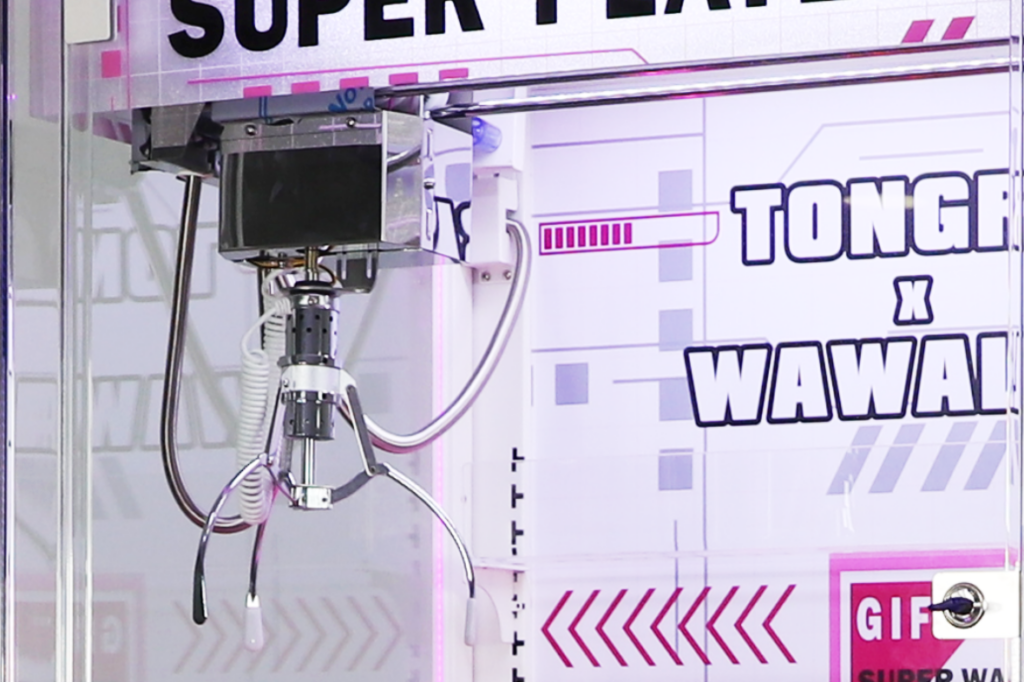Máquinas de garras são essenciais nos fliperamas, shoppings, e locais de entretenimento, sorteando jogadores com a promessa de ganhar um prêmio por um pequeno investimento. Mas eles são realmente jogos de habilidade, ou a sorte é o fator determinante?
Neste artigo, vamos explorar alguns Fatos divertidos incluindo a mecânica, psicologia, e ética das máquinas de garras, descobrir se eles são justos ou fraudulentos.
Compreendendo a mecânica das máquinas de garras

Como funcionam as máquinas de garras?
As máquinas de garras operam usando uma garra motorizada controlada pelos jogadores por meio de um joystick ou botões. Os jogadores pretendem pegar um prêmio e jogá-lo na rampa de coleta. A captura? A força de preensão da garra varia frequentemente dependendo da programação da máquina.
A maioria das máquinas de garras modernas são informatizadas, permitindo que os operadores ajustem configurações como força de preensão, ciclos de pagamento, e as chances de uma captura bem-sucedida. Embora esta programação garanta que os operadores tenham lucro, também influencia como “justo” o jogo parece.
Os jogos de garra são manipulados?
Sim, muitas máquinas de garras são manipuladas - pelo menos no sentido técnico. Os operadores podem programar máquinas para liberar o prêmio prematuramente ou tornar a garra mais fraca do que o necessário para levantar um prêmio. Isso garante que a máquina gere receita suficiente antes de permitir uma vitória. No entanto, manipulação não significa que vencer é impossível. As máquinas são projetadas para pagar ocasionalmente, tornando-os atraentes, mas frustrantemente desafiadores.
Por que as máquinas de garras são tão fracas?
A fraca aderência da garra é muitas vezes intencional. Enfraquecer a força das garras serve a dois propósitos:
- Maximização do lucro: Os operadores precisam garantir que o custo dos prêmios seja coberto pelo dinheiro arrecadado.
- Suspense e emoção: O sucesso ocasional da garra mantém os jogadores fisgados, esperando que sua próxima tentativa seja a vencedora.
A psicologia por trás das máquinas de garras

O apelo das máquinas de garras
Máquinas de garras brincam com emoções como excitação, concorrência, E a emoção de ganhar. Suas luzes coloridas, música alegre, e a tentadora exibição de prêmios criam um ambiente envolvente. Os jogadores muitas vezes pensam, “Só mais uma tentativa!”—uma mentalidade enraizada na falácia dos custos irrecuperáveis, onde as pessoas continuam investindo tempo ou dinheiro na esperança de recuperar suas perdas.
Habilidade versus. Sorte: Uma perspectiva psicológica
Embora a habilidade seja um fator importante – os jogadores precisam mirar com precisão e cronometrar seus movimentos – a sorte domina devido à aleatoriedade programada. Os jogadores muitas vezes superestimam seu controle sobre o resultado, levando-os a acreditar que sua próxima tentativa será bem-sucedida.
É jogo de máquina de garras?

Definições e interpretações legais
Na maioria das jurisdições, máquinas de garra não são classificadas como jogos de azar, mas jogos de guindaste. A distinção reside no facto de os jogadores receberem sempre um serviço (Por exemplo, jogando o jogo), mesmo que não ganhem um prêmio. No entanto, seus ciclos de pagamento programados confundem os limites, levantando questões sobre justiça.
Como vencer uma máquina de garras manipuladas

Embora as máquinas de garras sejam frequentemente programadas para o lucro, não é impossível enganá-los. Veja como você pode aumentar suas chances.
Reconhecendo padrões e ciclos de pagamento
A maioria das máquinas de garras tem ciclos de pagamento, onde a força da garra aumenta após um determinado número de tentativas malsucedidas. Observe outros jogadores para identificar padrões. Se alguém ganhar, é provável que a máquina não pague novamente por um tempo.
Melhorando suas chances
- Escolha a máquina certa: Procure máquinas com prêmios vagamente embalados. Itens lotados ou bem embalados são mais difíceis de agarrar.
- Teste a garra: Use sua primeira jogada para avaliar a força e a capacidade de resposta da garra.
- Mire estrategicamente: Concentre-se nos prêmios próximos à rampa e certifique-se de que a garra esteja posicionada corretamente antes de pressionar o botão.
- O tempo é fundamental: Solte a garra quando ela estiver diretamente acima do seu alvo para ter mais chances de sucesso.
Você pode realmente vencer o sistema?
Embora alguns jogadores afirmem que dominam máquinas de garras, a realidade é que o sucesso depende muito da programação da máquina. Mesmo com técnica perfeita, as probabilidades estão contra você.
Considerações Legais e Éticas

As máquinas de garras manipuladas são legais?
Máquinas de garras são legais na maioria dos lugares, desde que cumpram regulamentos específicos. Essas regras geralmente exigem que os prêmios possam ser ganhos e que a máquina não seja enganosa. No entanto, a capacidade de ajustar as configurações levanta questões éticas.
Implicações Éticas para Operadores
Operadores enfrentam um dilema moral: equilibrando lucratividade com justiça. Máquinas excessivamente manipuladas podem desencorajar os jogadores, enquanto configurações mais justas poderiam reduzir os lucros. A transparência sobre as taxas de pagamento pode melhorar a confiança e a satisfação entre os jogadores.
Conclusão
Máquinas de garras são uma mistura fascinante de habilidades, sorte, e psicologia. Embora muitos sejam manipulados para favorecer as operadoras, compreender sua mecânica e empregar técnicas estratégicas pode aumentar suas chances de sucesso. Quer você jogue por diversão ou pela emoção do desafio, lembre-se de estabelecer limites e aproveitar a experiência.
Perguntas frequentes
1. Por que as máquinas de garras são manipuladas?
As máquinas de garras são equipadas para garantir que os operadores recuperem seus custos e gerem lucro. Controlando a força de preensão e as taxas de pagamento, máquinas mantêm o interesse do jogador enquanto limitam as vitórias, garantindo que os prêmios custem menos do que a receita obtida.
2. Como posso vencer uma máquina de garras?
Observe os padrões de pagamento e busque prêmios soltos perto da rampa. Pratique o posicionamento da garra com precisão, e jogue em momentos mais calmos para se concentrar no tempo e no controle. Persistência e estratégia podem melhorar, mas não garanto, sucesso.
3. As máquinas de garra são consideradas jogos de azar?
Legalmente, máquinas de garra normalmente não são jogos de azar, pois os jogadores recebem um serviço mesmo que não ganhem. No entanto, sua confiança no acaso e nos ciclos de pagamento programados criam uma experiência semelhante à do jogo, confundindo a linha para muitos.
4. Por que as máquinas de garras têm empunhaduras fracas?
Apertos fracos maximizam os lucros limitando as vitórias. Eles criam suspense e frustração, motivando os jogadores a continuarem tentando. Ocasionalmente, apertos mais fortes são programados durante os ciclos de pagamento para manter a percepção de justiça e encorajar o jogo contínuo.
5. As máquinas de garras manipuladas são legais?
Sim, a maioria das máquinas de garras são legais se os prêmios forem tecnicamente ganháveis e as configurações estiverem em conformidade com as leis locais. Máquinas excessivamente manipuladas podem levantar questões éticas, mas eles permanecem dentro da lei, desde que não sejam abertamente enganosos.

















